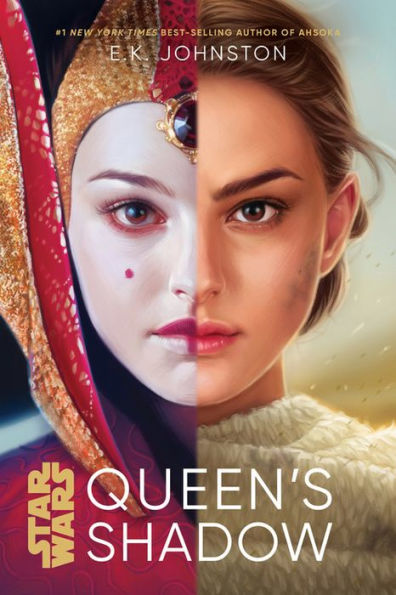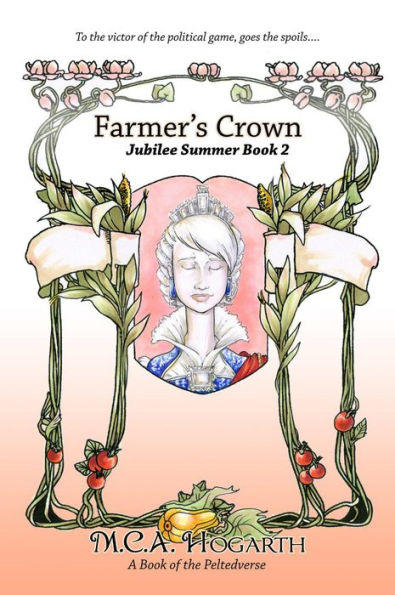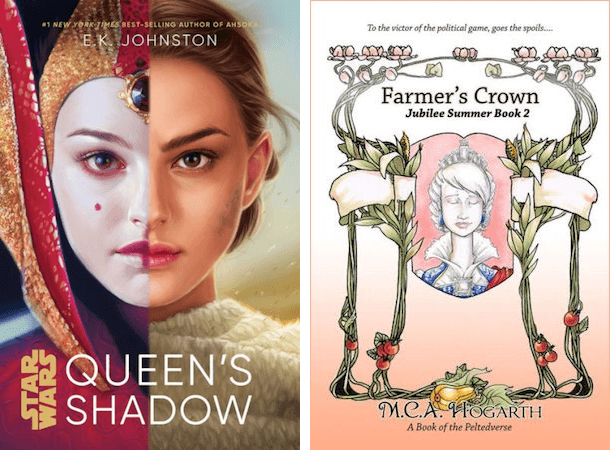Ever since I read E. K. Johnston’s Exit, Pursued By A Bear, I’ve been a fan of her quiet, understated approach to narrative. The work of her books is, as far as I can tell, closely circling thematic resonances, interpersonal tension, and character development, rather than the splashier and more obvious tensions and drives of action-led novels: thrillers, adventures, capers and heists. Even when her novels include such action, it’s always in service to the development of the character arc. The stakes are always intensely personal.
Buy the Book


Star Wars: Queen’s Shadow
It’s fascinating, then, to watch her deft hand at work in Star Wars: Queen’s Shadow, one of the latest novels set in a rebooted galaxy far, far away and following the life of Padmé Amidala after she has stepped down as elected Queen of Naboo and in the first stages of her appointment as a Republic Senator, but well before the Clone Wars. (My feelings about Star Wars and its approach to canon are ambivalent, at this point: My first introduction to space opera was Timothy Zahn’s Thrawn trilogy, and the sense of scale, wildness, deep history and personal consequences that he added to Star Wars remains a standard by which I can’t help but judge everything else in that tangled and repeatedly tragic mythos.) We all know how ill-served Padmé was by the end of her story—the galactic tragedy of inadequate maternal healthcare!—but one cannot escape, either, how powerful an image the Queen of Naboo and her loyal, competent, valiant handmaidens proved.
Johnston’s Queen’s Shadow dwells in Padmé’s power—in her compassion, her sense of duty, and her vision for a better future—and her connections with the women around her. (And with her new colleagues in the Senate, of course.) And the connections those women have with her, too: their love, loyalty, and work ethic. Especially Sabé, first and foremost of Padmé’s friends and handmaidens, who says of her friendship with the Senator:
“It’s a complicated relationship. She can order me to my death, and I will go. And she knows it. We’ve worked so hard to maintain a balance we will never truly have. As far as I can see, she will always pick Naboo, and I will always pick her.”
Sabé’s a pretty hardcore friend for Padmé to have. She knows how to do unconditional love, that’s for sure.
Much as I enjoyed Queen’s Shadow for its depiction of these women, their talents, loyalties, and relationships, as a novel it feels less like a narrative arc (even one of Johnston’s subdued, thematically focused, personal narrative arcs) than a kind of lingering love letter. For me, it doesn’t have a very satisfying structure—but I deeply enjoyed it nonetheless.
Buy the Book


Farmer's Crown
M. C. A. Hogarth’s Farmer’s Crown is the second volume in her Jubilee Summer duology, which follows the events of the six-book Princes’ Game series and deals with some of the consequences of the personal and political events of the Princes’ Game series. It’s not as emotionally fraught or as brutal in its particular interpersonal violences as the Princes’ Game. It may not be as quiet and gentle as Hogarth’s Dreamhealers duology, but it’s definitely closer to the comforting end of the spectrum, as Eldritch noblewoman Sediryl takes her place as her Empress-aunt’s heir, marries her cousin and lover Jahir, and begins to build on her skills, talents, and network of alliances to prevent her rival, her aunt’s former heir Bethsaida, from keeping her home planet from adopting the kind of technology that will allow the Eldritch people to survive and thrive. This fantasy-flavoured space opera universe is generally fun, and this particular installment plays strongly to Hogarth’s strengths. I enjoyed it, and I plan to keep looking out for more work in this setting.
What are you guys reading lately?
Liz Bourke is a cranky queer person who reads books. She holds a Ph.D in Classics from Trinity College, Dublin. Her first book, Sleeping With Monsters, a collection of reviews and criticism, was published in 2017 by Aqueduct Press. It was a finalist for the 2018 Locus Awards and was nominated for a 2018 Hugo Award in Best Related Work. Find her at her blog, where she’s been known to talk about even more books thanks to her Patreon supporters. Or find her at her Twitter. She supports the work of the Irish Refugee Council, the Transgender Equality Network Ireland, and the Abortion Rights Campaign.










